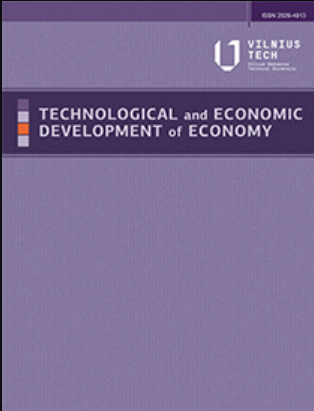INTERNET OF THINGS-ENABLED TOURISM ECONOMIC DATA ANALYSIS AND SUPPLY CHAIN MODELING
IF 3.9
2区 经济学
Q1 ECONOMICS
引用次数: 1
Abstract
The purpose is to cut the costs of Supply Chain enterprises in Ice-Snow Tourism (IST) and improve the intelligence and automation of Supply Chain Management (SCM). First, the spatial-temporal characteristics of economic data of the IST Supply Chain are analyzed based on the Internet of Things (IoT). Second, the annual Online Public Attention (OPA) data to IST in domestic cities and regions are collected. The quarterly concentration index and Gini coefficient are used to analyze their spatial and temporal characteristics. Then, the weighted fusion algorithm used for the Supply Chain scenario modeling is improved to solve data redundancy and improve information accuracy. Finally, the framework of the IST-oriented Supply Chain scenario ontology model is proposed. The experimental results show that Internet users give much attention to IST from 2011 to 2021. OPA to IST increased first and decreased and peaked in 2016. The final fusion value of the proposed data fusion algorithm is 20.0221, and that of the adaptive Weighted Average Method (WAM) is 20.0724. Thus, the proposed algorithm outperforms the adaptive WAM. The traditional scenario-based ontology model takes people as the center. In contrast, the Supply Chain scenario-based ontology model centers around product state and scenario. Therefore, the proposed Supply Chain scenario-based ontology model is entirely new. The proposed scenariobased ontology model using polymorphic IoT lays the foundation for developing an intelligent and automatic SCM. It has great practical significance in realizing efficient tourism industry management and SCM.基于物联网的旅游经济数据分析与供应链建模
目的是为了降低冰雪旅游供应链企业的成本,提高供应链管理的智能化和自动化程度。首先,分析了基于物联网的IST供应链经济数据的时空特征。其次,收集国内各城市和地区对IST的年度在线公众关注(OPA)数据。利用季度浓度指数和基尼系数分析其时空特征。然后,对用于供应链场景建模的加权融合算法进行改进,解决数据冗余问题,提高信息准确性;最后,提出了面向信息技术的供应链场景本体模型框架。实验结果表明,2011 - 2021年互联网用户对IST的关注程度较高。OPA对IST先上升后下降,并在2016年达到峰值。本文提出的数据融合算法的最终融合值为20.0221,自适应加权平均法(WAM)的最终融合值为20.0724。因此,该算法优于自适应WAM。传统的基于场景的本体模型以人为中心。相比之下,供应链基于场景的本体模型以产品状态和场景为中心。因此,本文提出的基于场景的供应链本体模型是全新的。提出的基于场景的多态物联网本体模型为开发智能自动化SCM奠定了基础。这对实现旅游产业高效管理和供应链管理具有重要的现实意义。
本文章由计算机程序翻译,如有差异,请以英文原文为准。
求助全文
约1分钟内获得全文
求助全文
来源期刊
CiteScore
10.00
自引率
8.50%
发文量
66
审稿时长
15 weeks
期刊介绍:
Technological and Economic Development of Economy is a refereed journal that publishes original research and review articles and book reviews. The Journal is designed for publishing articles in the following fields of research:
systems for sustainable development,
policy on sustainable development,
legislation on sustainable development,
strategies, approaches and methods for sustainable development,
visions and scenarios for the future,
education for sustainable development,
institutional change and sustainable development,
health care and sustainable development,
alternative economic paradigms for sustainable development,
partnership in the field of sustainable development,
industry and sustainable development,
sustainable development challenges to business and management,
technological changes and sustainable development,
social aspects of sustainability,
economic dimensions of sustainability,
political dimensions of sustainability,
innovations,
life cycle design and assessment,
ethics and sustainability,
sustainable design and material selection,
assessment of environmental impact,
ecology and sustainability,
application case studies,
best practices,
decision making theory,
models of operations research,
theory and practice of operations research,
statistics,
optimization,
simulation.
All papers to be published in Technological and Economic Development of Economy are peer reviewed by two appointed experts. The Journal is published quarterly, in March, June, September and December.

 求助内容:
求助内容: 应助结果提醒方式:
应助结果提醒方式:


